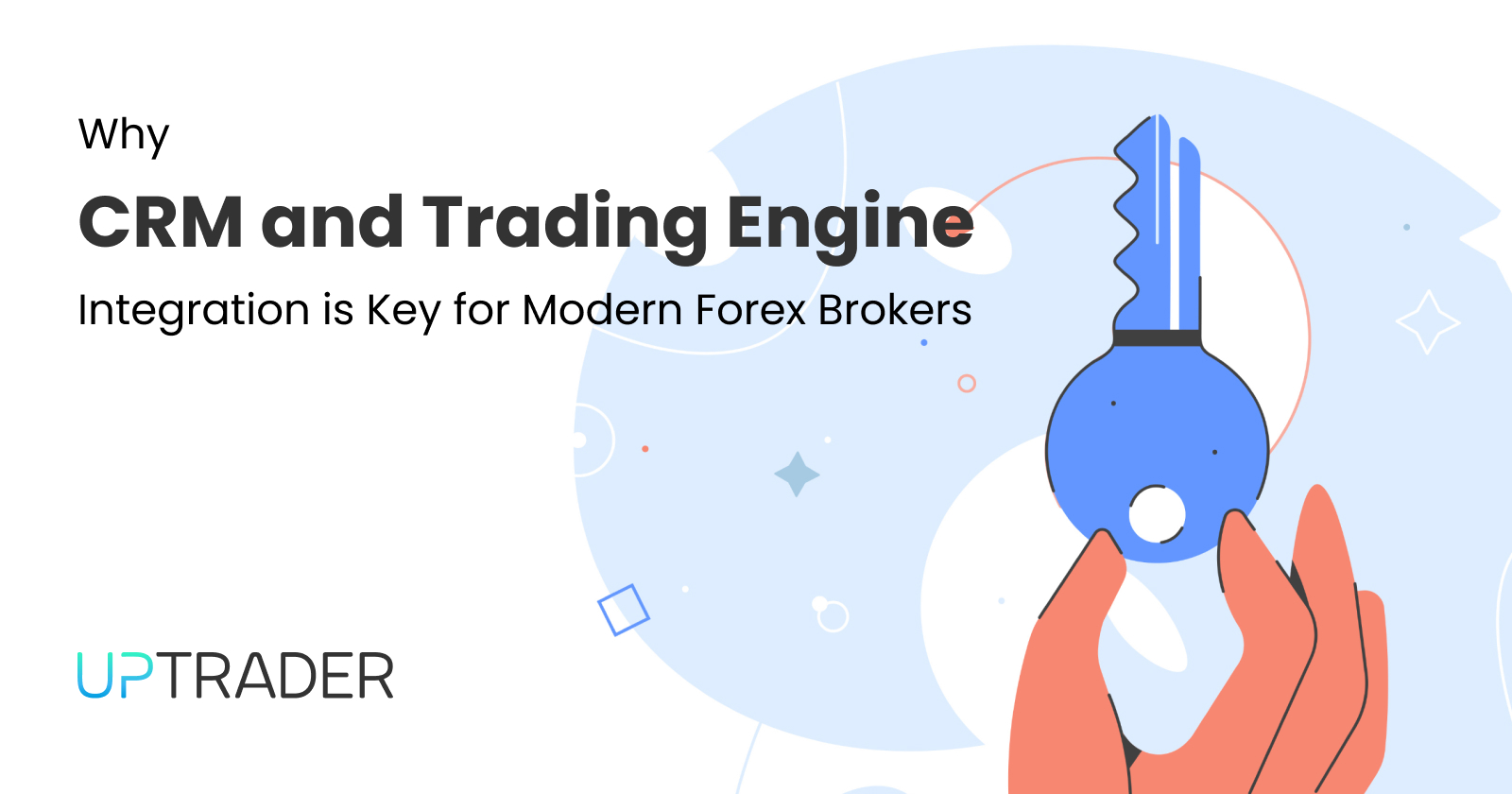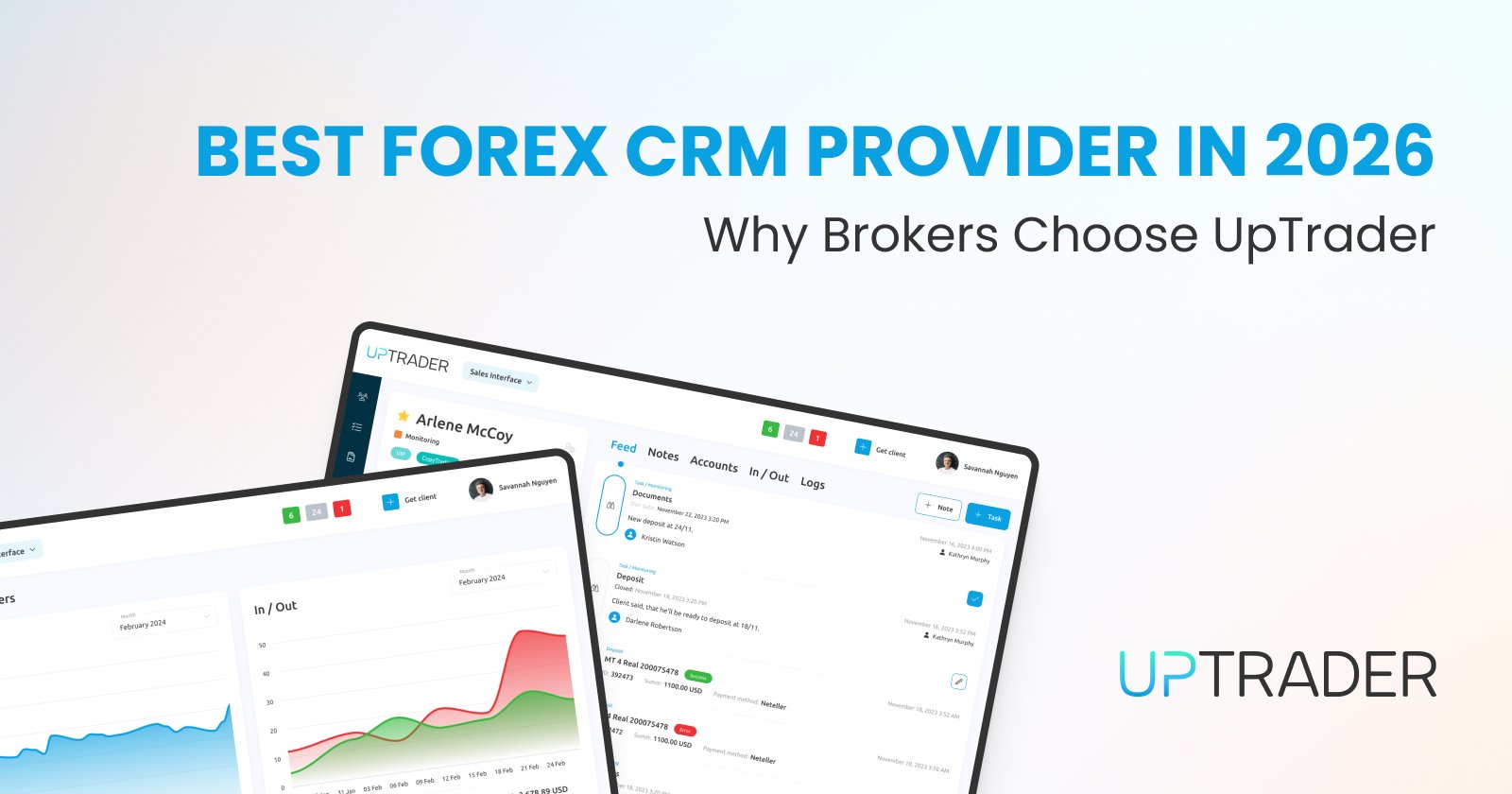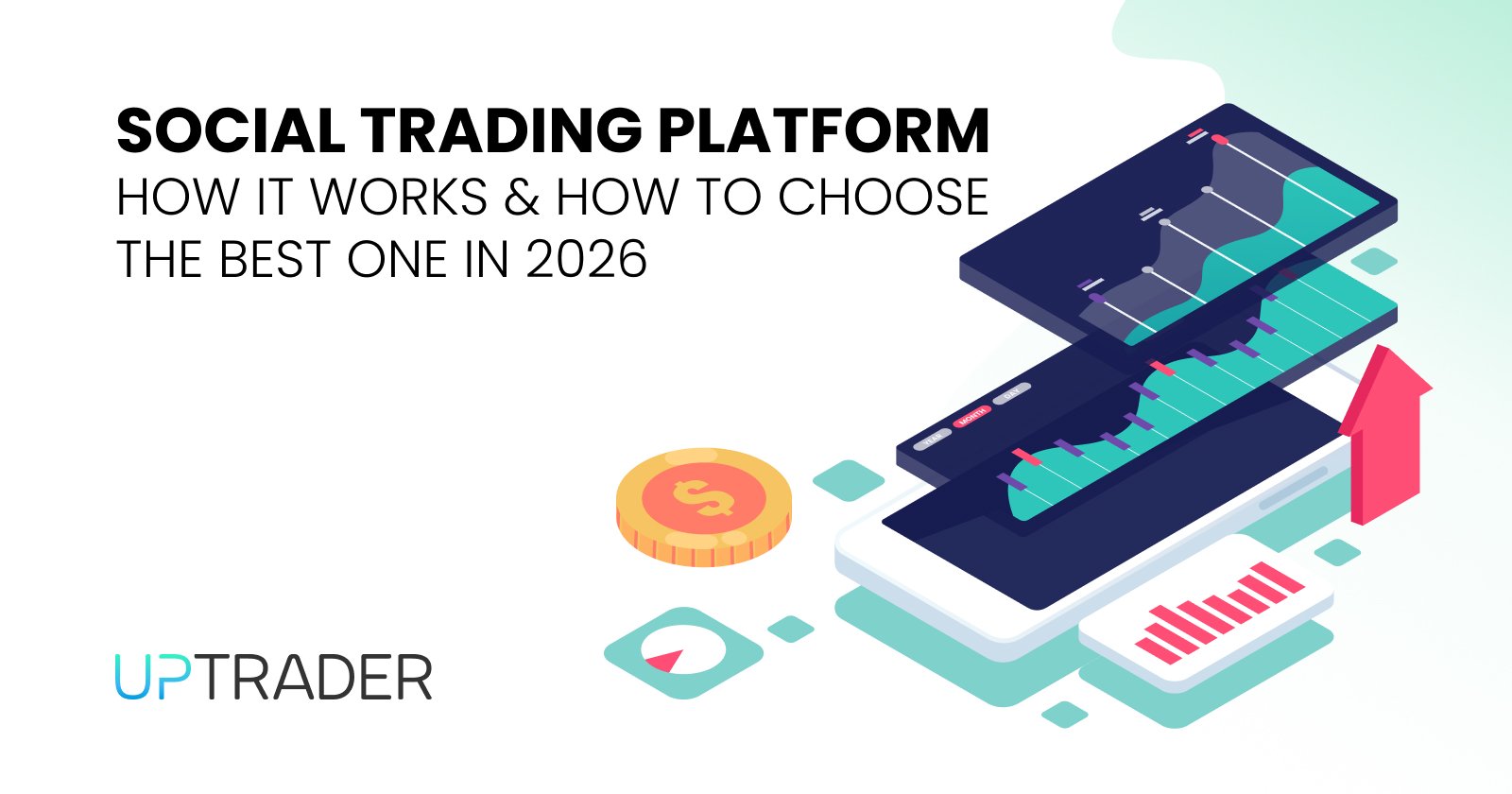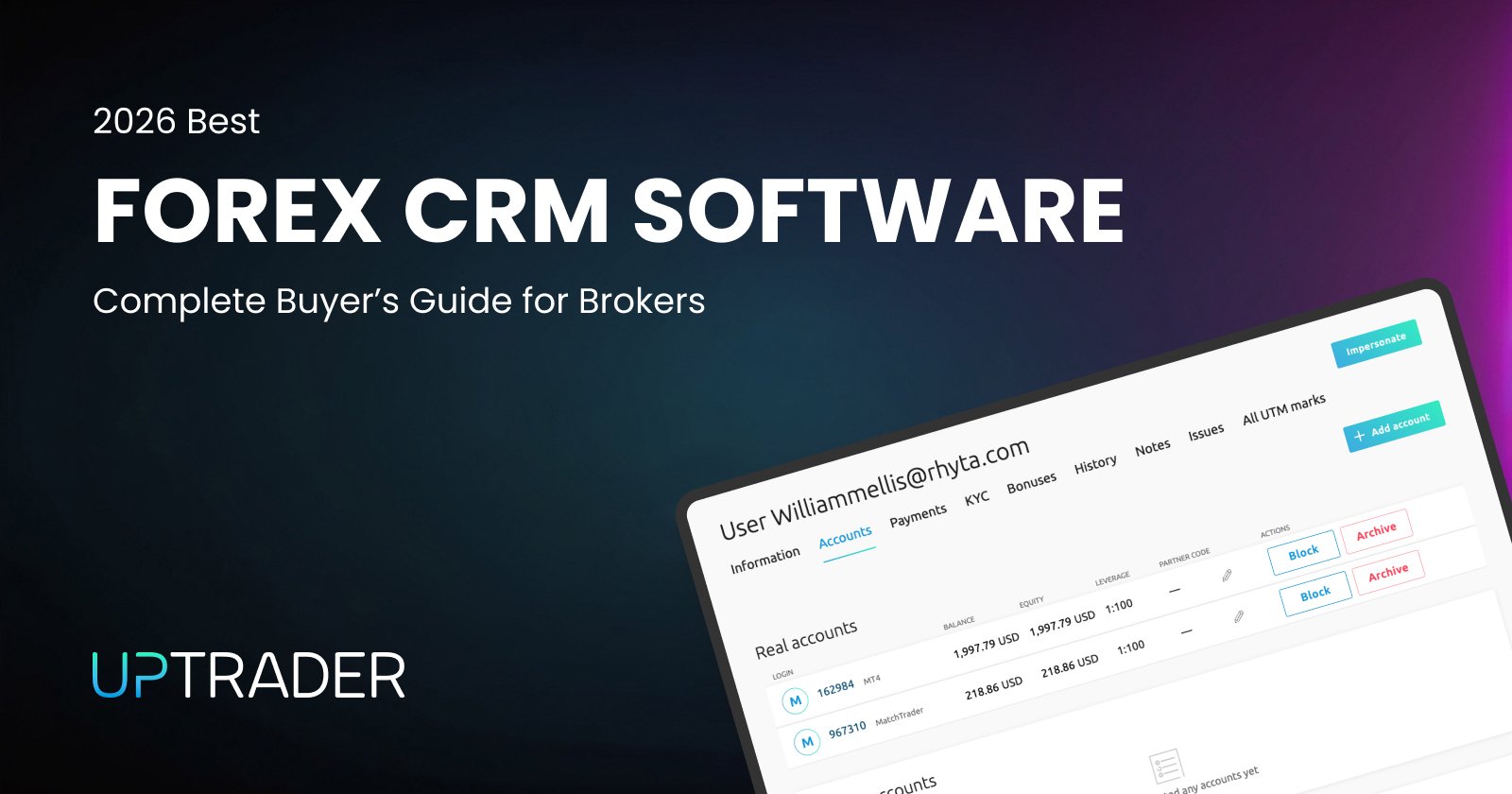Why CRM and Trading Engine Integration is Key for Modern Forex Brokers

Share this publication:
The forex industry is always changing, and brokers are presented with numerous problems: the problems of getting and keeping customers, ensuring a smooth process, compliance, and most importantly staying ahead of the competition. Very few of these traders know there is a better solution – connecting the CRM and trading engine. This allows brokers to have simplified mechanisms, automated processes, and in the end, a better experience for clients and brokers.
In this article, we will discuss the reasons for the integration of CRM systems and trading engines for modern forex brokers.
The Importance of CRM and Trading Engine Integration
1. Enhanced Client Management
Forex brokerage houses need a trading CRM system that will help them manage and develop good relationships with their clients. With powerful CRM applications that are integrated with a trading system, the broker can bring together various information systems and databases such as a client’s profile, his trading history, conversations to date, and performance metrics into one system. Such single-source data enables brokers to analyze each and every client deeply with regard to their trading patterns, performance risk, and investment appetites.
With a CRM embedded in a trading system, the broker can provide services and attend to the clients based on the information available at that time. For example, if a brokerage system has notified that one of the top clientele has transacted a certain amount of trades, the broker knows to reach that individual and provide a specific package or promotion. As a result of all the customization, helping brokers stand out in a competitive market.
2. Increased Operational Efficiency
To successfully run a forex brokerage, executing several processes from client onboarding to trade execution and settlement. Most of these steps can be automated thanks to the CRM and trade management systems combined with a trading engine, thus minimizing human effort and errors in the process.
To illustrate, an integrated CRM and trading system will offer features that ease client onboarding. The CRM is capable of KYC purposes, thus collecting all required information and verifying it before relaying it to the trading engine for account creation. Consequently, this liberates clients from the tedious activity of entering their information again, and correcting errors, and they are ready to commence trading within a short duration.
Moreover, the integration of CRM and trading engine allows for market transaction management in the form of workflows. Pre-calculated actions like opening new trading accounts, issuing a bonus reward, and even a trade ban through conditions specified by regulators can be actioned by brokers' preset parameters. This sort of technology is effective because it lessens the amount of time spent and guarantees that all steps are adhered to every single time in order to avoid any compliance risk or operational failure.
3. Real-Time Data Synchronization
The financial markets operate in real-time, with currency values fluctuating by the second. Forex CRM and trading solutions that work with a trading engine make it possible for real-time updating and information considering trades, profits, losses and the state of the market is always available to the brokers and clients.
Synchronized time also enables brokers to get realistic performance statistics that can prove useful in the evaluation and improvement of trading strategies. In addition, brokers can also manage the trading activities of the clients in the course of such trading, to control the risks involved and act if required. For example, in case there is too much volatility in a client’s portfolio the CRM would warn the broker who would then either coach the client or suggest ways that reduce possible risks
4. Improved Regulatory Compliance
Adherence to both foreign and domestic monetary policies is one of the key constituencies of managing a forex brokerage. Yet, given how strict the finance sector is, any failure to comply with the set standards can result in penalties, loss of reputation, and even revocation of operating licenses. A broker can be assisted in maintaining adherence to the set standards by using a trading firm with CRM that connects with the trading engine which helps automate the auditing and reporting process.
CRM and trade management systems put client information, history of transactions, any communication made, as well as regulatory documents in one secure vault making it easier to access and provide such information to the concerned bodies when requested. The systems have also facilitated automating processes of anti- money laundering (AML) checks, risk screening and management, and transaction monitoring. This not only reduces the strain on the compliance departments but also reduces the risks of compliance breaches, thus allowing brokers to conduct business legally at all times.
5. Enhanced Client Retention and Loyalty
Gaining customer loyalty in broker businesses, particularly Forex trading is of paramount importance in the long-term success. Forex CRM with integrating systems enables brokers to enhance client retention by offering customized services and great support.
When there is a CRM integrated with a Trading Engine, it is possible to create a system that recognizes the trading habits, objectives, and level of experience of each client and improves the service to them. For instance, specific clients, that trade more with a single broker, may be targeted with promotional offers, or special promotional campaigns may even be run for them. The CRM will then check the Trading Activity, Trading Behavior, Withdrawal Behavior, Clients’ Review, etc. to determine if there is a possibility that a Client will make a mistake and if there is a way to help them.
Automated alerts can be put in place to notify the brokers in case a client stays inactive for some time or there are significant changes in the trading behavior so that they can reach out to the client before he or she considers leaving for another brokerage firm. By anticipating their clients’ needs, brokers are able to develop loyalty, improve client satisfaction, and minimize client losses.
6. Customizable and Scalable Solutions
As Forex brokerage firms expand and develop, so does the complexity of the software employed. In such a case, a wise investment will be a tailor-made trading CRM system with trading engine integration that can adjust when needed. Both modern CRM and trading engine solutions are customizable, enabling the brokers to add or change aspects of the solution in line with their needs. This is important for brokers who want to widen their reach, introduce new offerings, or even expand their geographical scope of operations.
With regard to ready-to-use systems, it is also worth noting that brokerage companies can set up user access levels and do away with the risks of leaking sensitive data. As brokers scale, they can integrate additional tools, such as risk management modules, advanced reporting, or client education resources, to enhance their CRM and trading platform.
7. Enhanced Analytics and Reporting
Data-driven decision-making is becoming increasingly important in the forex industry. By integrating CRM with a trading engine, brokers gain access to advanced analytics and reporting tools that can provide valuable insights into their clients’ behavior, trading trends, and overall business performance.
This system will also allow brokers to generate dashboards with a range of indicators, including client acquisition costs, trading volume, average account balances, and retention rates. This can help brokers polish their management and advertising techniques and recognize the situations that can contribute to increasing their profitability. Besides, with the combination of the CRM and the trading engine, the advertising compensation system allows for estimating the effectiveness of any particular campaign or promotion as well as managing financial resources more effectively.
8. Streamlined Communication and Client Support
When it comes to Forex brokers, they have clients from every corner of the world and that includes people from varying time zones. It becomes imperative to communicate and provide support effectively in such a way that the clients remain content and trust the business. A trading CRM that comes with integrated communications tools like a live chat, email, or SMS facilitates the brokers in handling communication effectively and promptly.
CRM and trading engine integration allow brokers to view a client’s trading history, preferences, and support history within a single interface, providing support agents with a comprehensive view of the client’s profile. Therefore, agents can easily and efficiently resolve customers’ issues improving the overall client service. In addition to that, the CRM system can generate reminders, give relevant updates, and send alerts when any significant changes of the customer accounts occur so that the clients are well kept up to date on their account activity and any occurrence in the market.
9. Increased Competitiveness
With the growing number of forex brokers in the market, standing out requires a strategic approach. By using the best CRM for trading platforms, brokers can differentiate themselves through enhanced services, personalized experiences, and superior client support. CRM and trading engine integration helps brokers gain a competitive edge by enabling them to deliver seamless experiences that are tailored to the needs of each client.
Advanced features, such as AI-driven recommendations, automated trade suggestions, and personalized investment advice, can help brokers attract clients who are looking for a sophisticated, data-driven trading experience. By embracing CRM with trading engine integration, brokers can position themselves as leaders in the industry, attracting clients who prioritize quality, efficiency, and innovation.
10. Future-Proofing the Brokerage
Forex trading is active 24 hours anywhere in the world. New technology, rules, and client requests change the picture of the market continuously. The combination of a CRM and a trading engine can make brokers lose the risk of going out-of-date as it provides a flexible and transformable platform in tune with the changing market. CRM systems can also ease the integration of other mobile trading features as more brokers begin to adopt AI mobile applications.
A well-designed CRM and trade management application, allows brokers to remain strategic and proactive to external shifts in market dynamics and even legislations, thus protecting the relevance and competitiveness of the business. Solutions become the catalyst for future brokers who want to create solid foundations for expansion and profitability in the travel in motion.
Conclusion and Final Thoughts
For modern forex brokers, integrating CRM and trading engine systems is no longer an option—it’s a necessity. This connection brings advantages such as better customer handling and compliance, more efficient business operations, and other benefits from competitive advantage. A suitable CRM for any trading platform is a trading rig integrated with its engine custom-built for the brokers’ peculiarities and requirements.
The integration of CRM with a trading platform allows brokers in the present-day market, to focus on improving customer services, running their businesses efficiently, and adapting to any internal or external changes quickly. Given the demographic changes in the forex market today, and the significant advances in technology, it makes business sense that brokers looking to enjoy maximum profits and client retention/engagement will invest in CRM and trading engine integration.
If you wish to explore wonderful, powerful CRM software, Copy trading solutions, and platforms with PAMM and MAM modules, talk to a consultant on our website today, and experience UpTrader today for the betterment of your brokerage!







